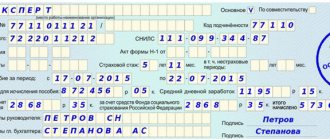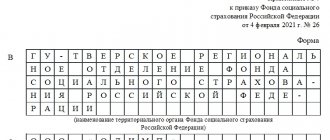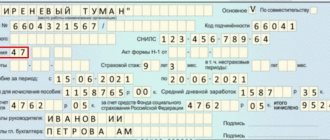Reasons for termination of an employment contract
When applying for a job, a new employee enters into an agreement with the organization, which is regulated by the provisions of the Labor Code of the Russian Federation. Termination of this agreement may occur for various reasons:
- at the request of the employee;
- at the initiative of the employer;
- by agreement of both parties;
- due to circumstances beyond the control of both parties;
- when moving to a new position;
- in case of violation of the rules of the employment contract;
- upon expiration of the contract.
The most convenient option for both parties is mutual consent. In this case, the employee and manager can enter into an agreement that will be beneficial to both. Usually, in this case, the employee receives additional payments, and the employer guarantees that the agreement will not be canceled or challenged due to changed circumstances in the employee’s life.
Dismissal for inadequacy of the position is a rare option, as it is often difficult to prove.
An employee who does not show up for work may subsequently bring sick leave, in which case he will not be counted as absenteeism. Professional unsuitability can only be revealed in the event of a general certification that meets the requirements of the law.
The most common is leaving work of your own free will. Sometimes, even in the case of serious violations, the employer gives the person the opportunity to write a statement on his own so that dismissal under the article is not recorded in the work book.
But more often a person simply finds another, higher-paying, prestigious or convenient vacancy or moves.
Sometimes the reason for dismissal is reluctance to work under new management, unpreparedness for business trips, changes in working conditions, or deteriorating health.
After the written application, a two-week work period follows , but often people try to reduce it or avoid it altogether. Since sick leave is included in service upon dismissal, sometimes it is taken so as not to return to the place of duty. But before making hasty decisions, you need to know how many days you are supposed to work in different situations.
Duration of processing
Working off is not a completely legal term. This is the name given to the two-week period given to the employee after he writes a letter of resignation under Part 1 of Art. 80 Labor Code of the Russian Federation. During these 14 days, the employee has the opportunity to reconsider his decision and transfer matters to the person who will subsequently take his place. Then the employment contract is terminated.
It happens that after writing a statement, a person changes his mind and wants to stay. In this case, you have the opportunity to pick up the document and continue working.
But if by this time a replacement has already been found for the employee, the employer does not have the right to refuse the employee taken in his place and will be forced to dismiss the one who wrote the application anyway, therefore, before officially notifying management about your departure, it is important to carefully weigh everything and understand that, if you change your mind , you can still lose your job.
Three to fourteen days
If the decision is made and the application is written, no one has the right to detain the employee for more than two weeks. During this time, he is either present on site and transfers cases, or the following situations occur:
- working hours occur on holidays (for example, the weekend after the New Year);
- the employee goes on his next annual leave (if he did not have time to exercise this right, compensation must be received);
- the person is absent due to illness (sick leave is included in the pay off upon dismissal).
The work does not have to last two weeks. This period may be reduced to three days in the following cases:
- the employee is on a probationary period;
- the duration of the employment contract is less than 60 calendar days;
- The contract states that the employee is hired for one season.
You must notify management of your desire to stop working by writing a statement.
Quick dismissal
Management may also release an employee earlier by agreement of both parties or in the following circumstances:
- employee retirement;
- enrollment in an educational institution;
- gross violations of the employment contract;
- moving to another region for work, health reasons or changing permanent place of residence;
- transfer of a military spouse;
- pregnancy;
- caring for a child or sick relative.
For these reasons, actual dismissal may occur on the day the application is written, but it is usually required to provide evidence proving the right to leave without working time.
This may be an order for the transfer of a spouse, a health certificate, an extract from the previous place of residence and other documents appropriate to the case.
You can also go on sick leave followed by dismissal without work if the incapacity for work lasts for 14 days after the application was submitted to superiors.
What payments are due?
On the day of dismissal, the employee must receive:
- monetary compensation for unused vacation in full;
- the unpaid part of the salary, taking into account the last working day;
- other payments provided for by the wage regulations, collective agreement or other local regulations.
Payment for sick leave issued before dismissal is made after it is closed and presented to the employer. Within 10 days, the employer calculates the payment, and the money is transferred on the next payday (Part 1, Article 15 of the Federal Law of December 29, 2006 No. 255-FZ). It does not matter whether the employee has resigned by this time or is still on the staff.
Dismissal at the initiative of the employer
Sometimes termination of a contract occurs not at the request of the employee, but at the initiative of the organization, for example, in the event of liquidation of an enterprise, reduction of staff, or violations by an employee. In most cases, the employee must be warned 2-3 months before the upcoming dismissal, with the exception of seasonal workers, who need to be warned a week before.
In any case, at the time of termination of the contract, wages must be paid in full, as well as due compensation payments and benefits.
Sometimes an organization seeks to avoid unnecessary monetary compensation and insists on dismissing employees at their own request. However, by agreeing to this, the employee is deprived of all payments due to him, except for the basic calculation.
In case of gross violations of official duties, the offender is fired; in case of liquidation of the enterprise, all employees are fired, but when staff is reduced, management has to make a choice between specialists. Usually the most highly qualified and promising employees are retained, but besides them, there are categories of people who simply cannot be laid off. These include:
- pregnant women;
- parents with children under 3 years of age;
- temporarily disabled.
In this way, it is impossible to lay off a person who is on sick leave . And since the date of dismissal is known 2 months in advance, some are tempted to take a certificate of incapacity for work for that day, so that the organization does not have the right to take away the workplace. But such actions will not lead to the desired result.
The reduction will not occur at the appointed time, but will follow immediately after the person returns to work. There will be no extension of the employment contract or even work off (it will be included in the period of sick leave). However, the date of dismissal in the order and work book will be postponed, and all payments will be made at the expense of the organization.
So, management cannot lay off an employee on sick leave on their own, since this contradicts Art. 81 Labor Code of the Russian Federation. An employee has the right to write a statement during illness and not go to work, since sick leave is included in the work off upon dismissal of his own free will. If the employer did not take this into account and did not issue an order two weeks after reading the application, and the recovered employee changed his mind about leaving, he cannot be fired at another date.
Sanctions for violations
Liability for violations is established by the Code of Administrative Offences. An employee can seek protection of his rights from labor inspectors, the prosecutor's office and the court.
If the court confirms that there were violations, the employee will be reinstated, and the company will compensate for lost earnings.
Social guarantees are provided by the Labor Code of the Russian Federation. A person can exercise their right to rest and submit a resignation letter at the same time. The rule also applies to cases when a woman takes sick leave to care for a child. In any case, the contract is terminated on the date specified in the application.
Social guarantees do not depend on the reason for registering a ballot. A person can be fired both during his illness and while caring for a sick family member.
Sick leave payment
In all cases, except for the liquidation of the enterprise, the period of incapacity for work must be paid.
But the size of the benefit varies depending on the time of dismissal, as well as the insurance experience available to all people who have entered into an agreement and who actually work. Charges are calculated as follows:
- 100% of salary for 8 years of experience;
- 80% - from 5 years;
- 60% in all other cases.
Thus, in the event of illness and the presence of a document confirming it, the corresponding payment for it occurs in full, regardless of the date on which the sick leave is closed, as well as when it expired after the date of termination of the employment contract.
Moreover, if a certificate of incapacity for work was received within a calendar month after dismissal and a new employment has not yet occurred, you can contact your former employer within six months with a demand to pay for it. But regardless of the insurance period, payments will not exceed 60% of average earnings.
Summary
- The Constitution and the Labor Code guarantee the prohibition of forced labor. Therefore, a person can resign from office whenever he pleases. There are no obstacles.
- You can resign while on vacation or during illness.
- If sick leave is issued, then we resign on a general basis. Dates are not transferred.
- If you leave your position, you can still get money. Payment is made if you have time to apply no later than six months after dismissal.
- When a person leaves work, the ballot is paid for a period no later than thirty days from the date of termination of the contract.
- The documents are drawn up so that the employee leaves her position on the date indicated in the application. The working time is not extended when a document on incapacity for work is issued.
Severance of labor relations
Knowing all the rules that an organization follows when dismissing or severing an employment relationship, you can begin the process by writing a statement. It’s most convenient to use the company’s letterhead, but if you don’t have one, you can write the application by hand. This is done as follows:
- in the upper right corner is indicated the full name, position of the person to whom the application is addressed, and the name of the organization (for example, General Director of Stal LLC Ivanov I.A.), as well as the initials and position of the person wishing to resign (from engineer Kotova M . IN.);
- the title of the document (resignation letter) is written as the title;
- the text of the document itself contains the request, the date of the last working day, special circumstances, if any, and the reason (I ask you to dismiss me at your own request on May 1, 2021, without work due to the transfer of my spouse to a new duty station);
- the document ends with the full initials of its author, personal signature and date (Kotova Marina Vladislavovna, April 30, 2018).
The example considers an application requesting leave without work. If you plan to remain at work for another two weeks, they will be counted from the next day after written notification to the employer.
If the application is written on April 30, the person is completely free from all official obligations on May 15. But the deadlines are observed only when personally transmitting the document to the employer; an oral statement has no legal force, and when sending a letter by mail, the deadlines for delivering the correspondence must be taken into account.
If circumstances change, you can withdraw a previously written application.
If they have not yet managed to invite another person to this position in writing, the employer does not have the right to dismiss someone who has changed their mind from the position .
After reading the application, the manager issues an order indicating the full name of the person being dismissed, his personnel number, position and name of the unit, date and reason for leaving, and a link to the Labor Code. After the employee signs the order, the HR department will prepare a work book, and the accountant will make the accruals.
The full calculation contains payment for the entire period worked, required compensation, incentive payments, if any. Compensation most often includes payment for vacation that the employee did not have time to take. But if he was taken off work ahead of time and had to be worked off, the employee, on the contrary, will be withheld the amount owed.
The payment must be received on time, even if the person is on sick leave at that time. In case of long delays, the organization is obliged to pay a penalty. The certificate of incapacity for work will be paid after its closure, on the next day or on the nearest day of payment of salary or advance payment.
Thus, if you intend to quit, you need to carefully weigh the pros and cons and remember that this decision cannot always be reversed. If you are completely sure of the need for care, you need to know that no one will be able to keep an employee at work for more than 14 days, and sick leave is counted as working time upon dismissal. But the employer will be forced to wait until his subordinate’s certificate of incapacity for work expires, regardless of the date for which the layoff was planned.









